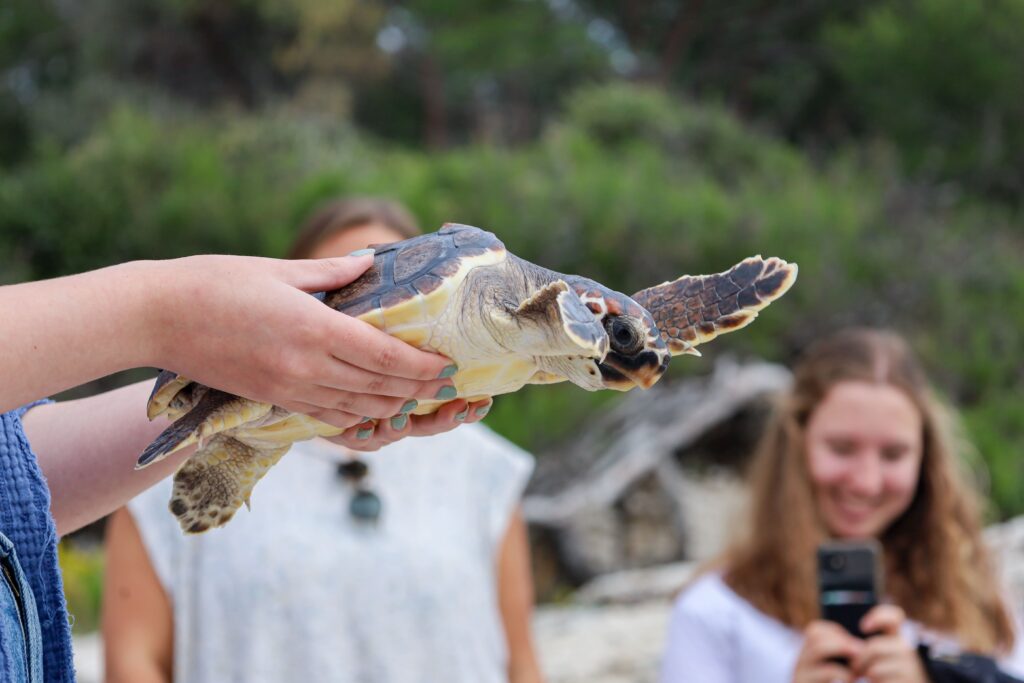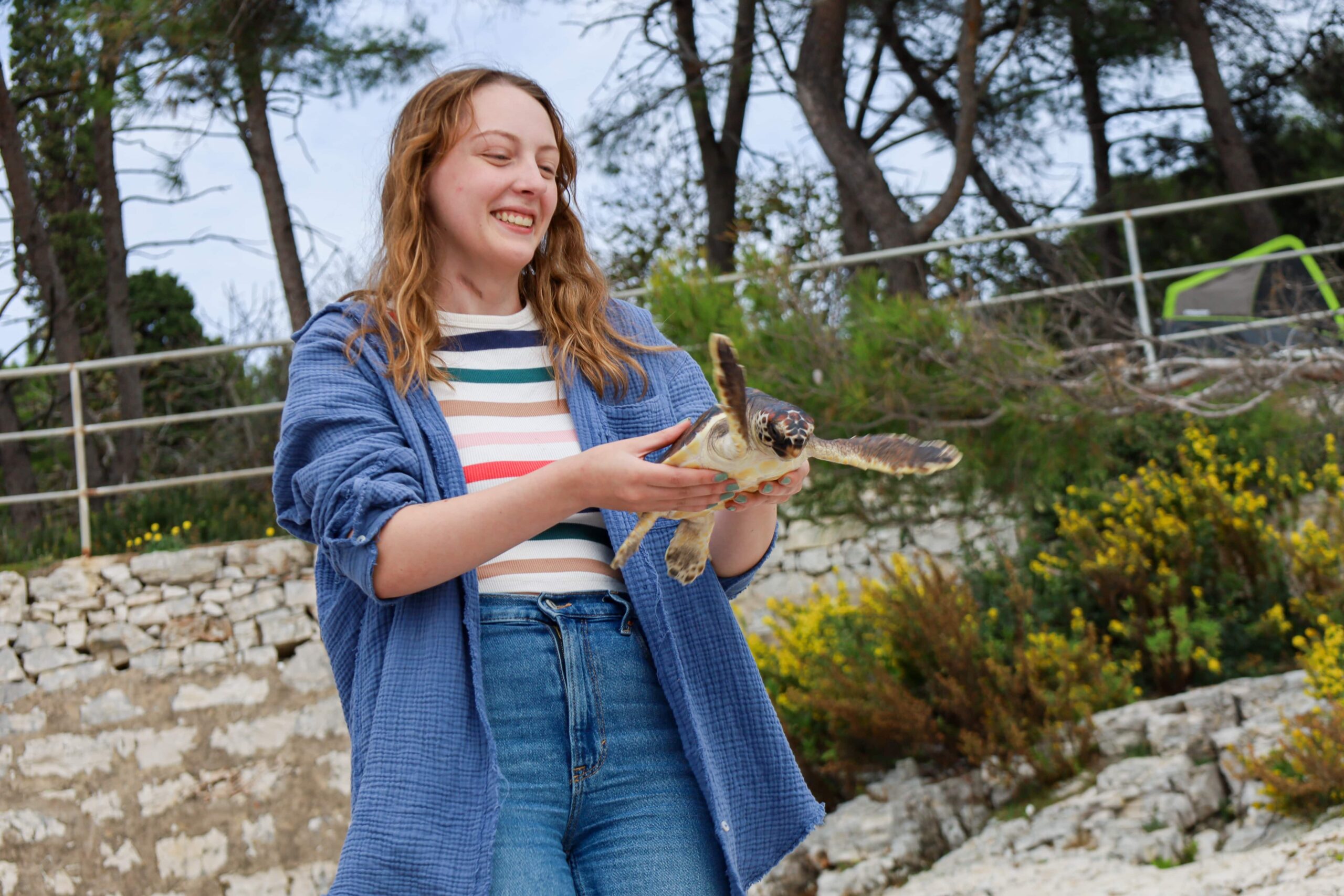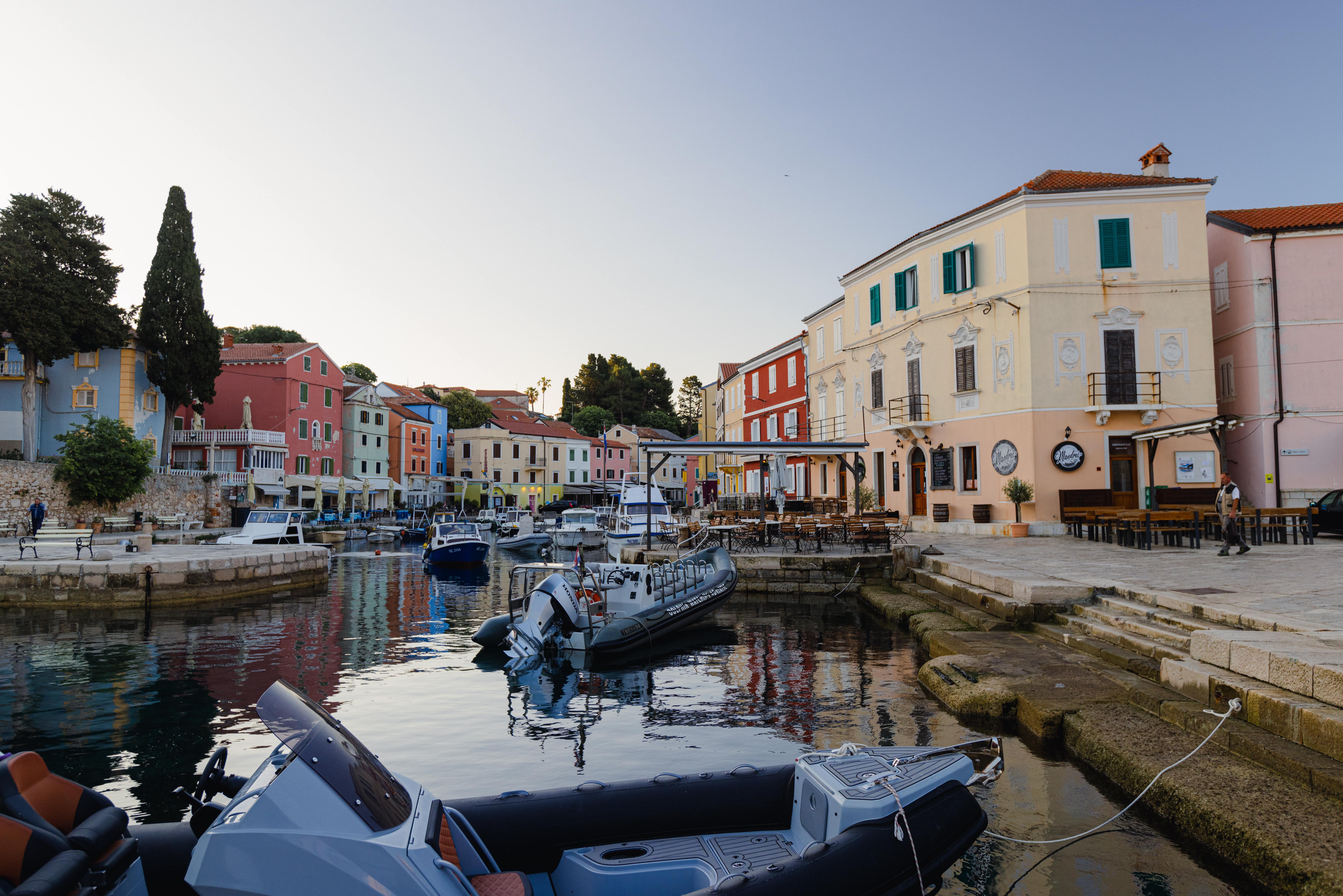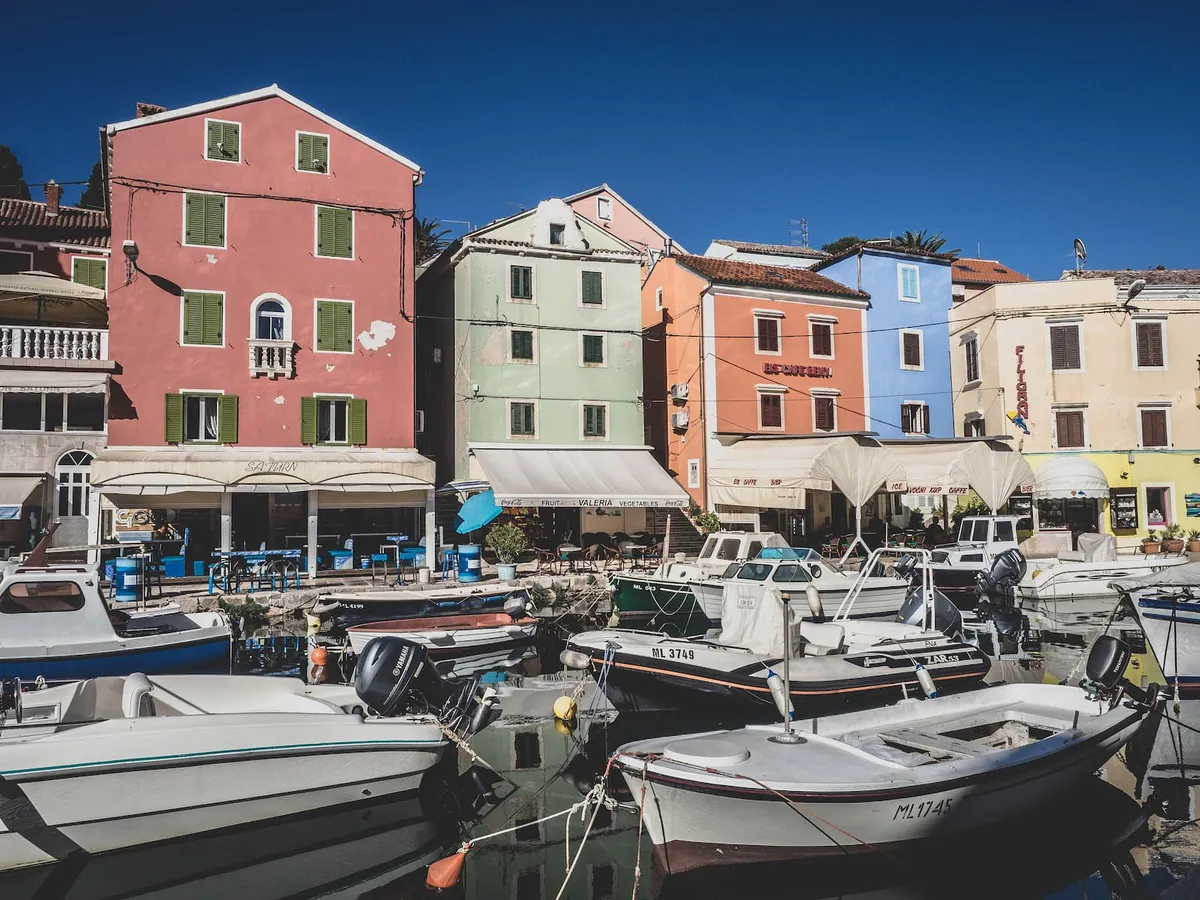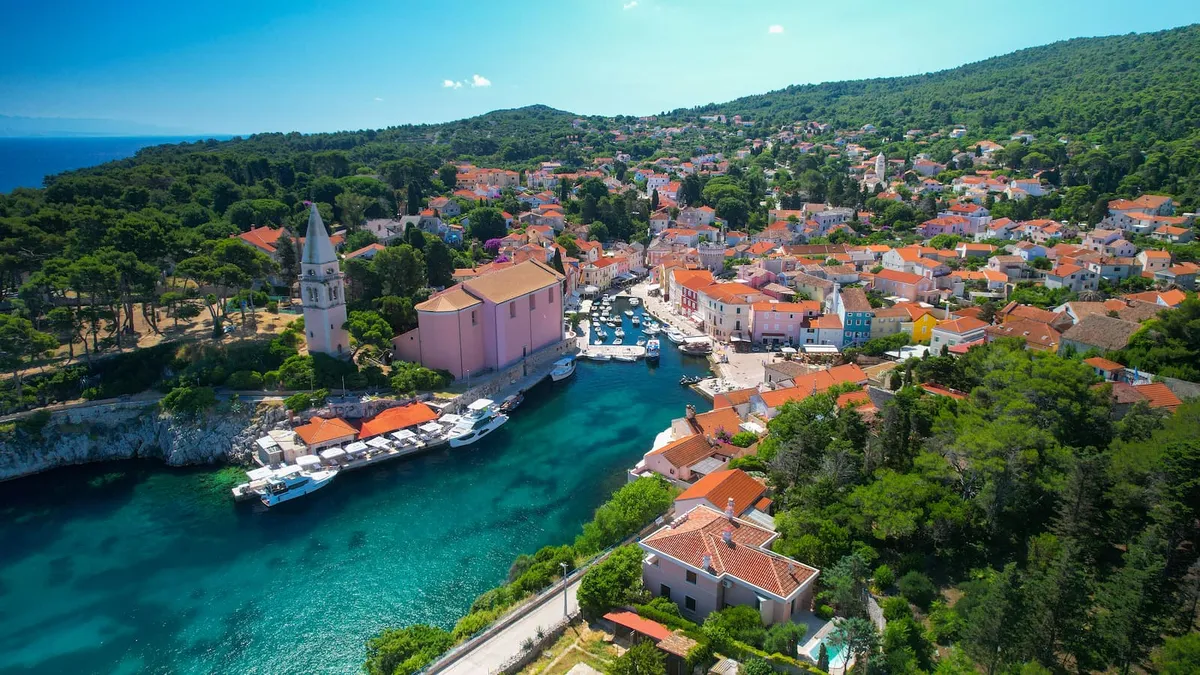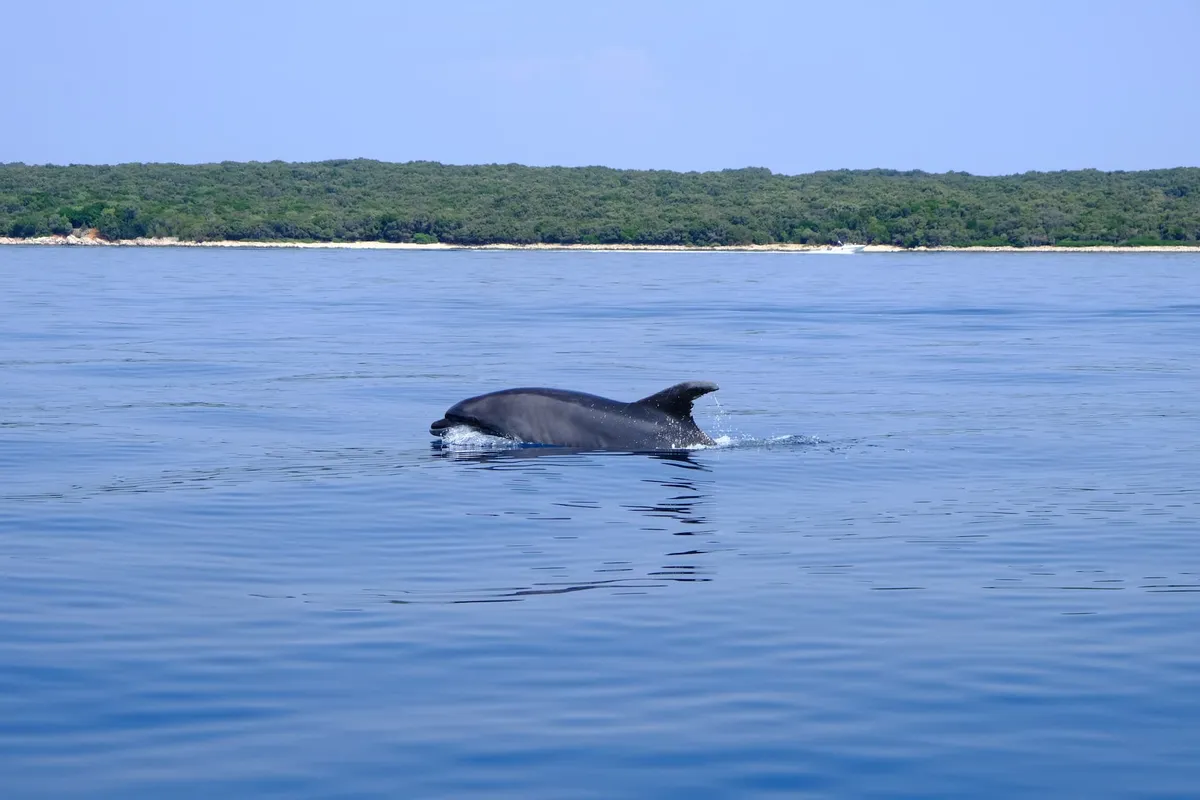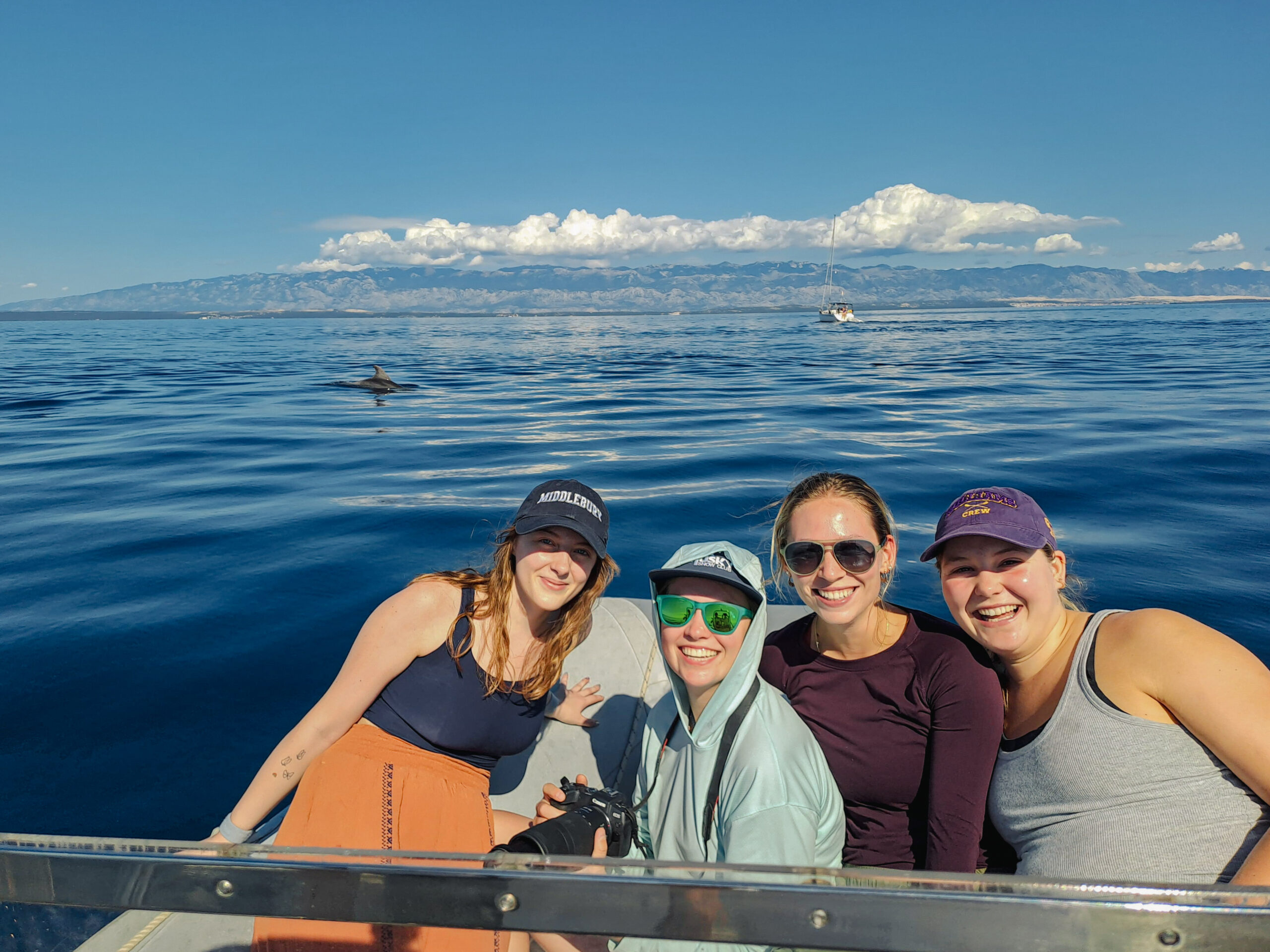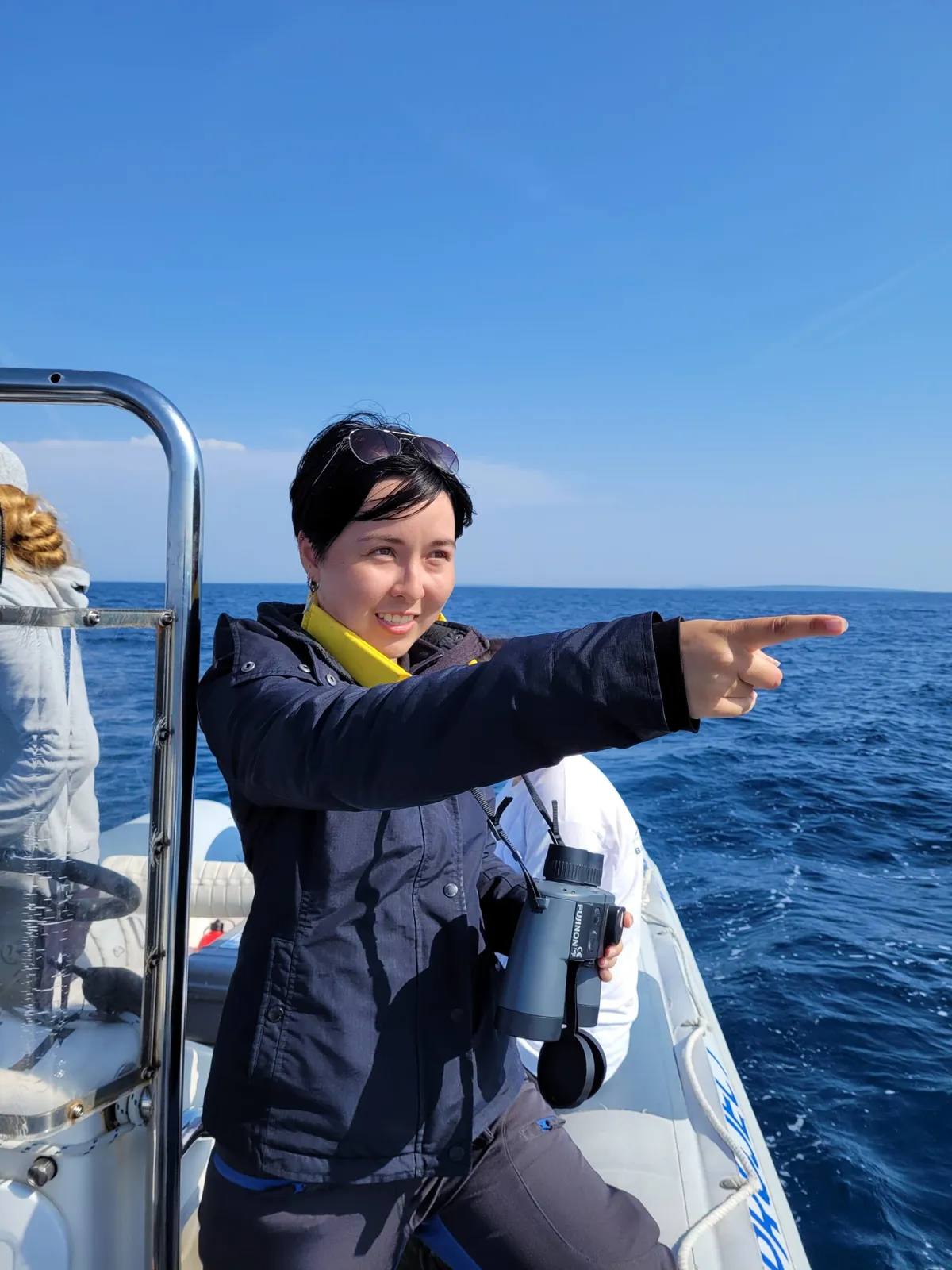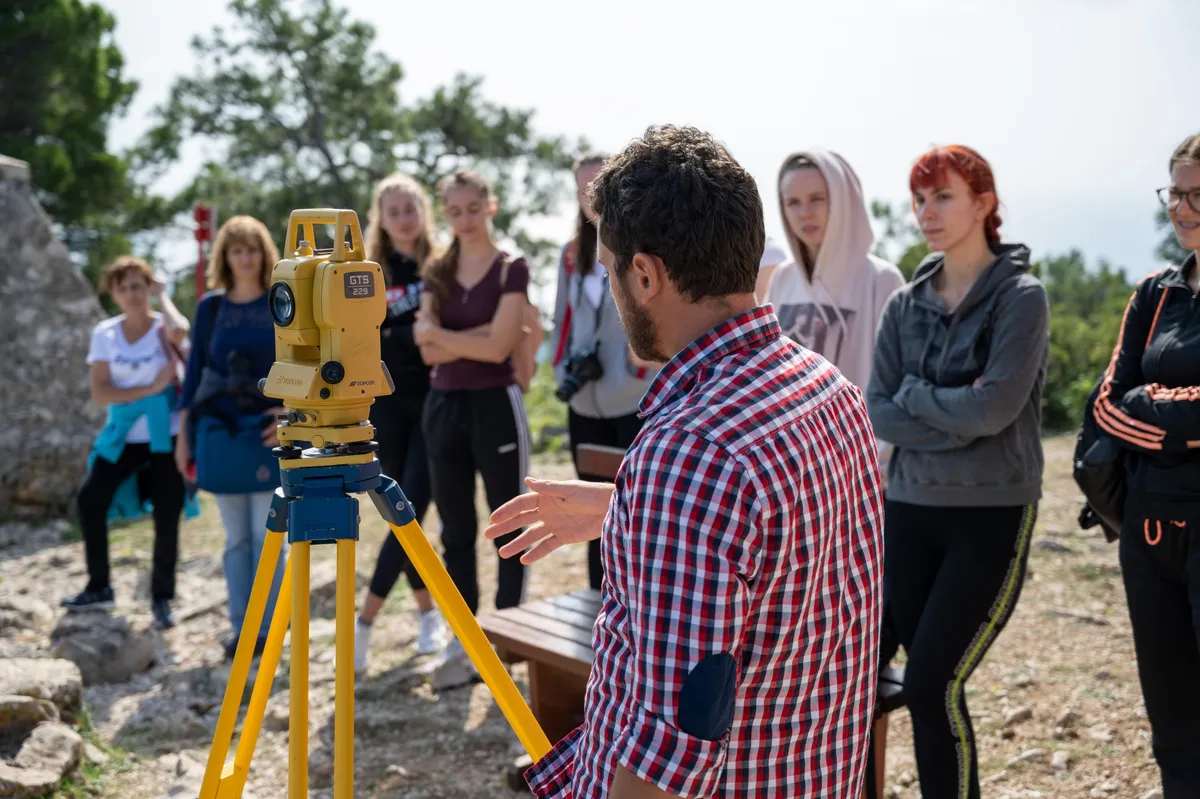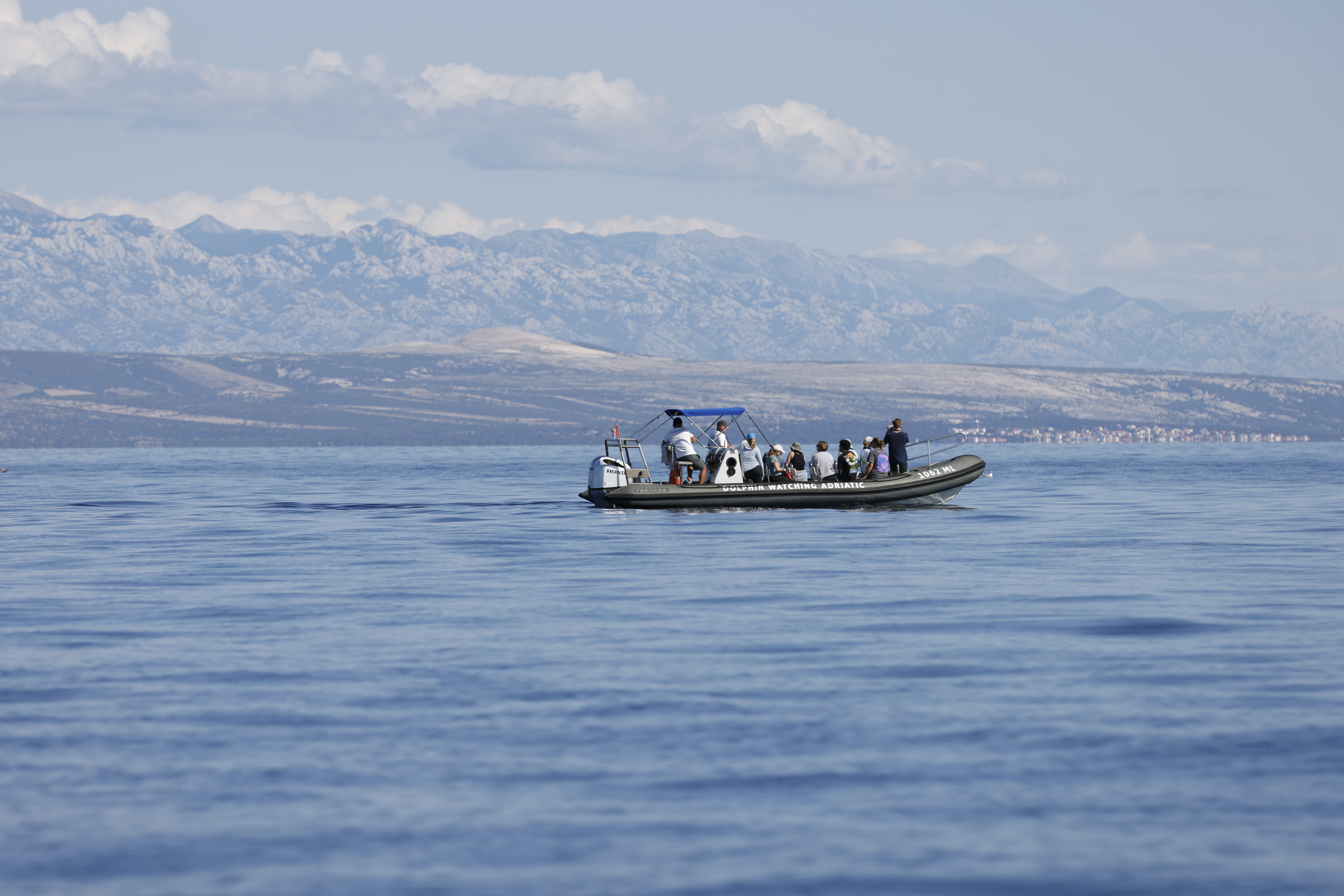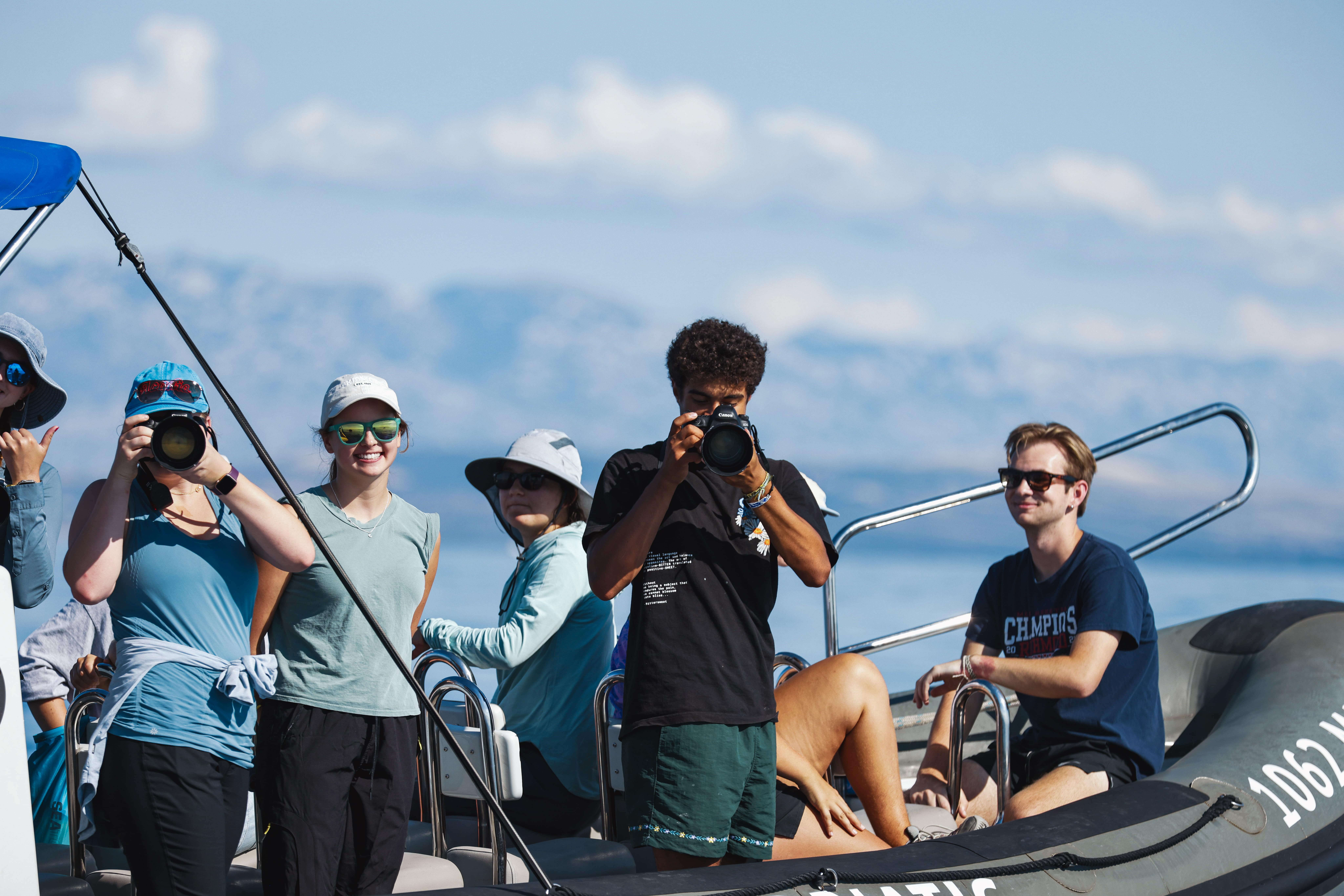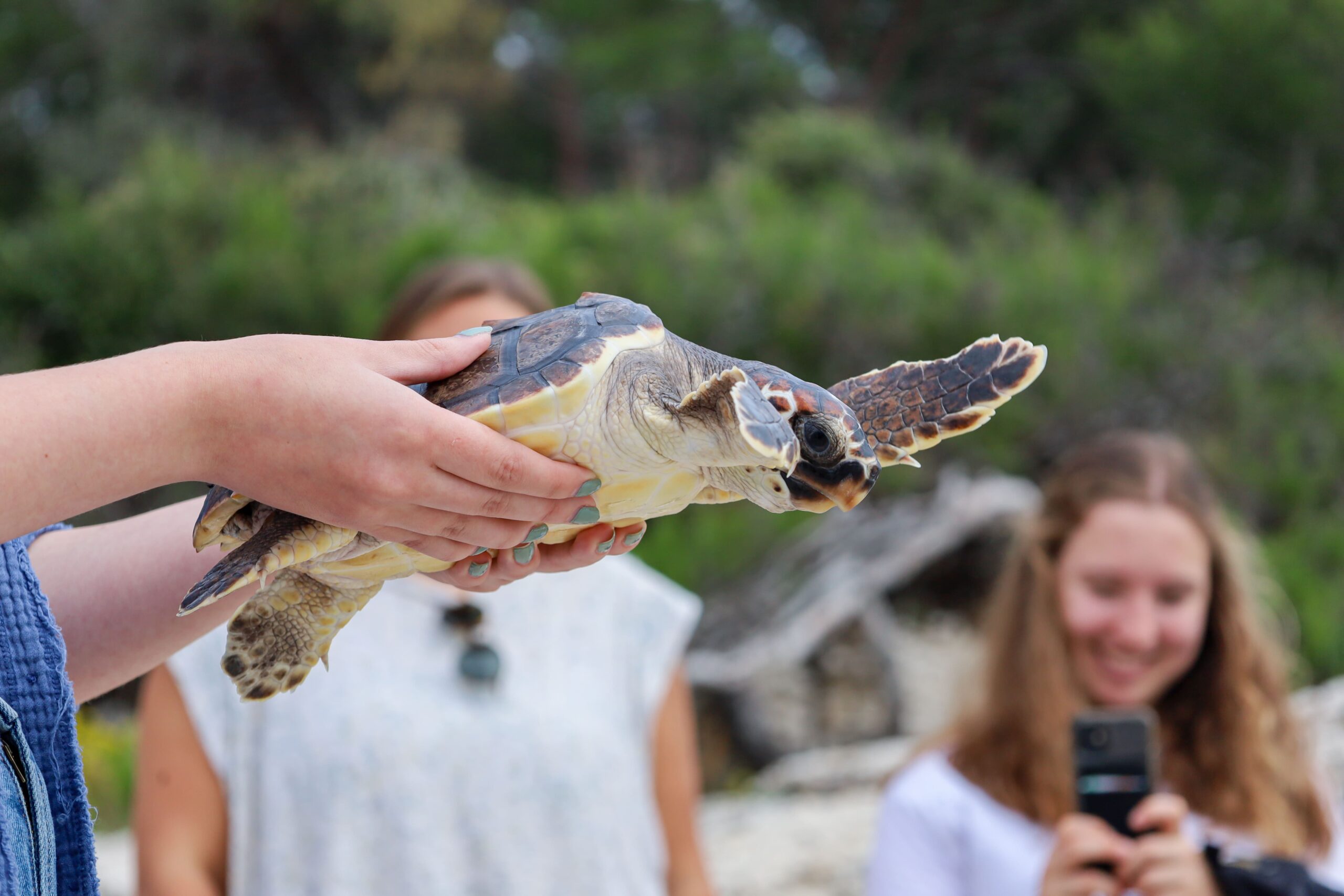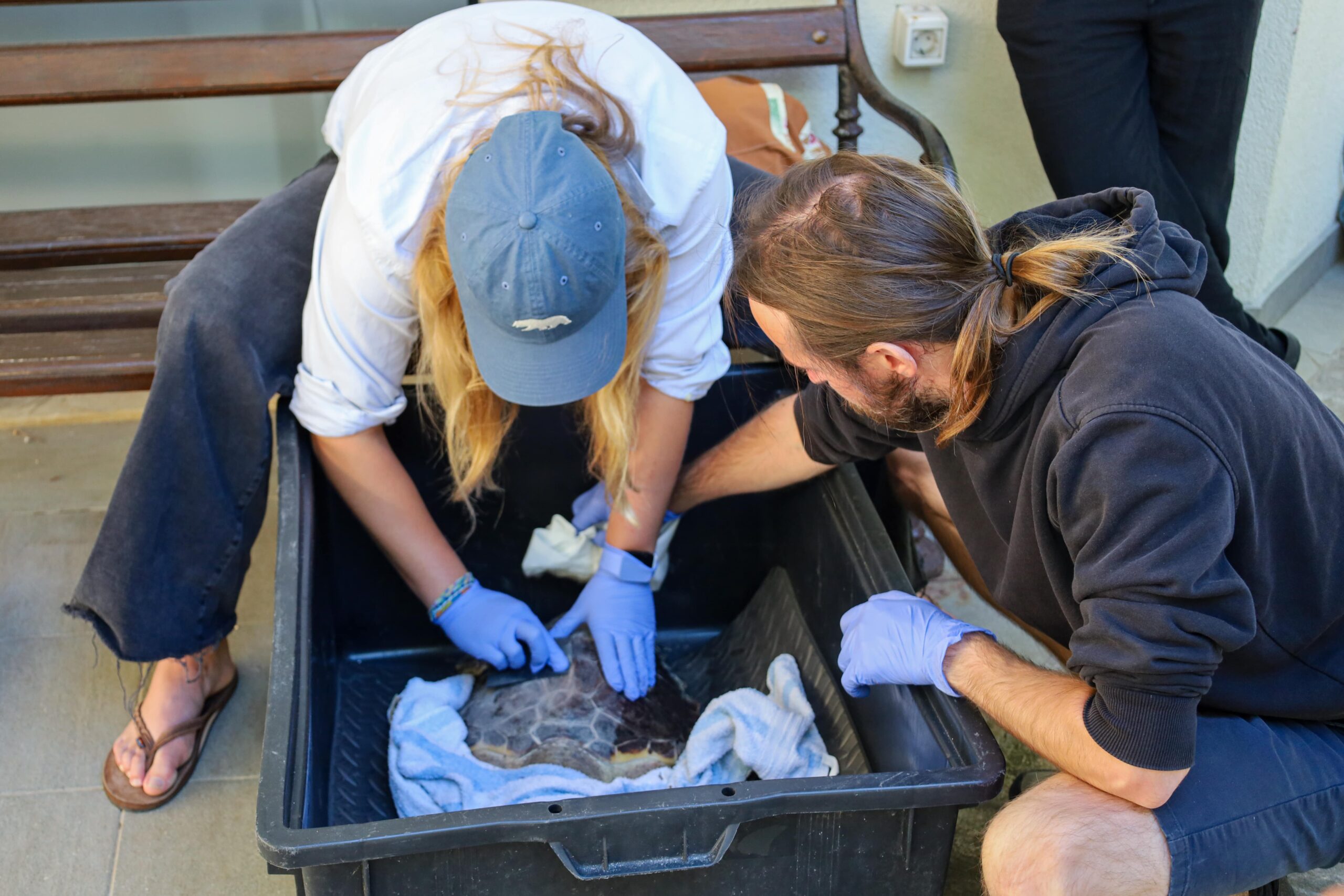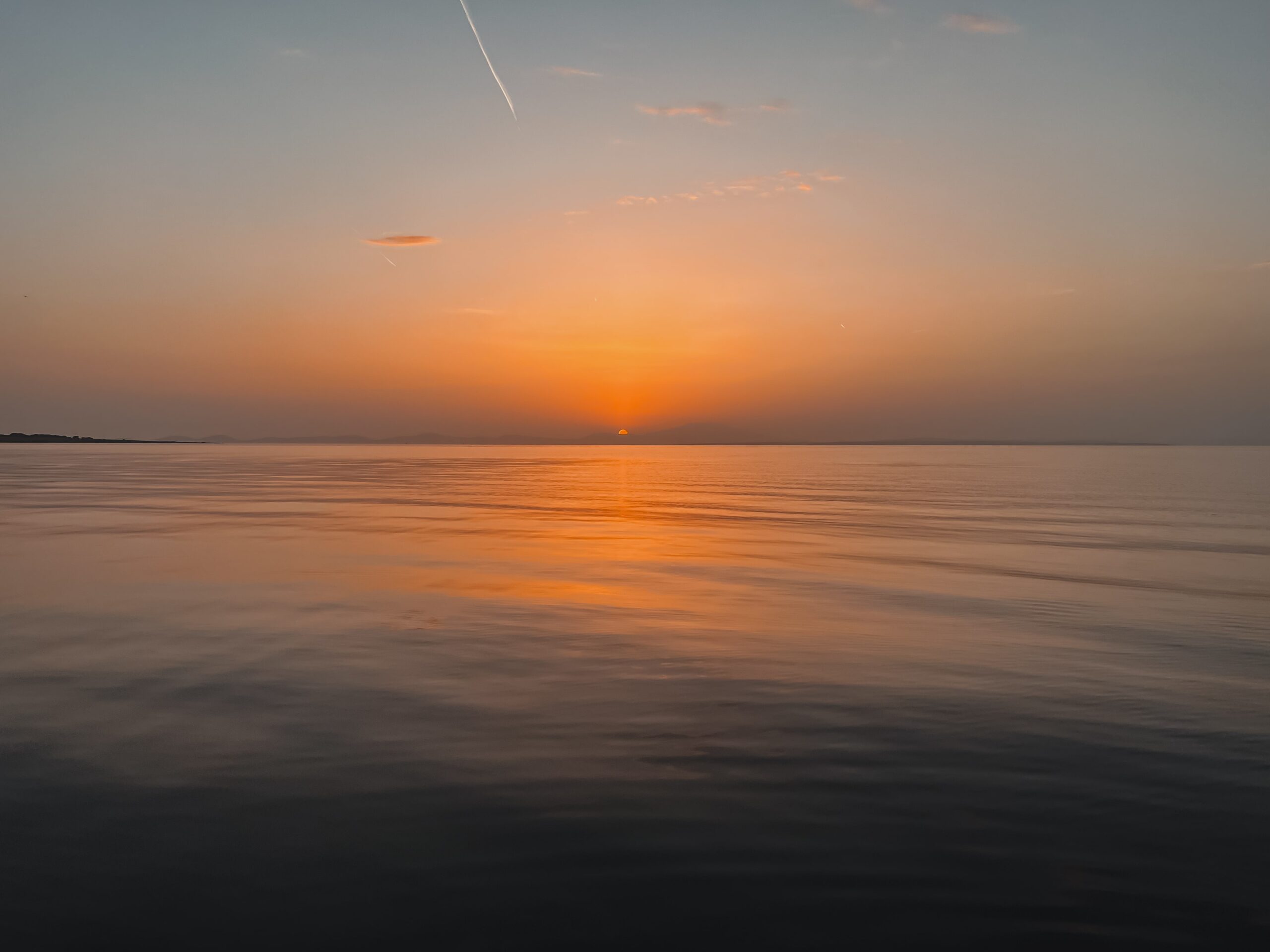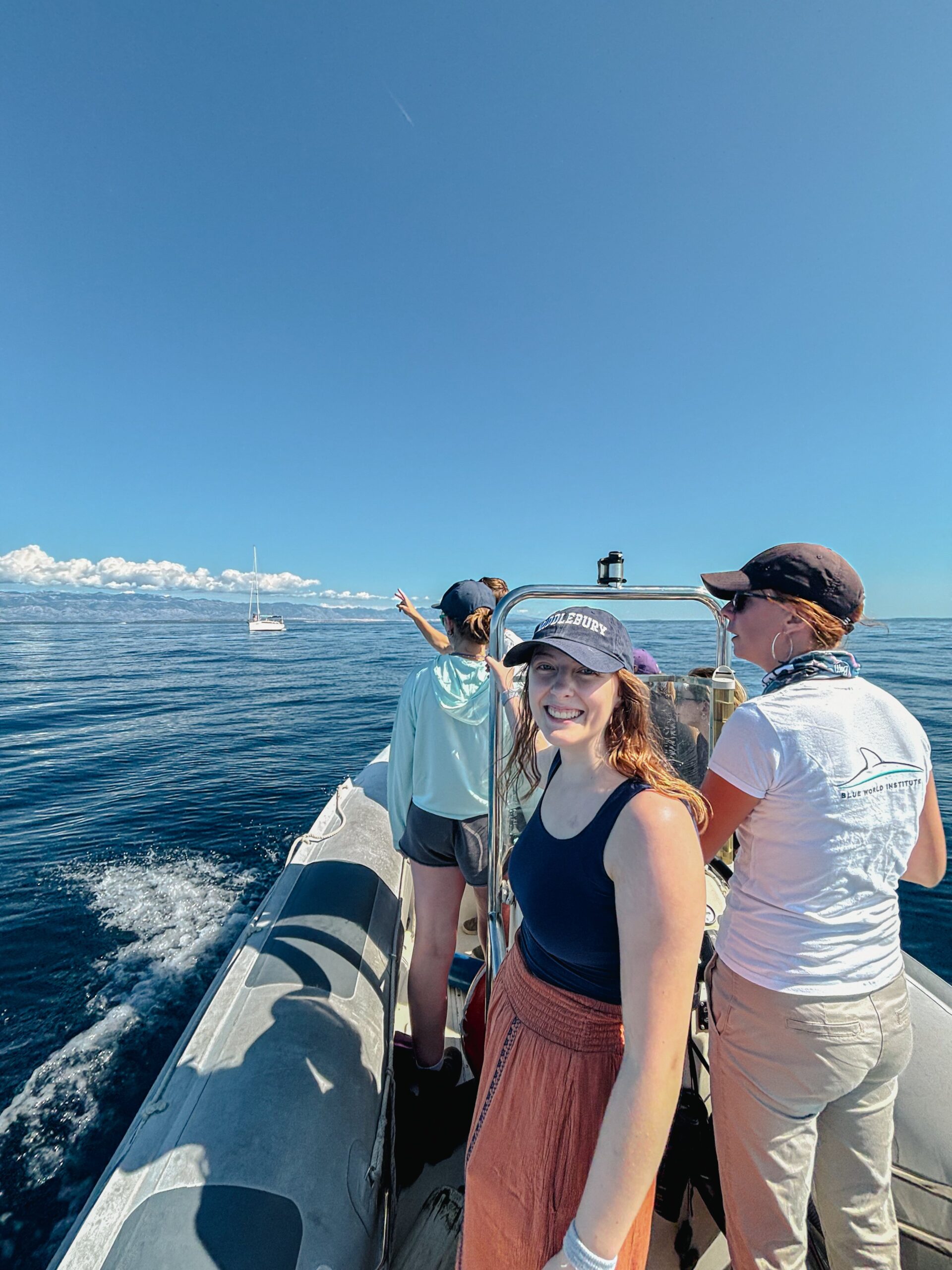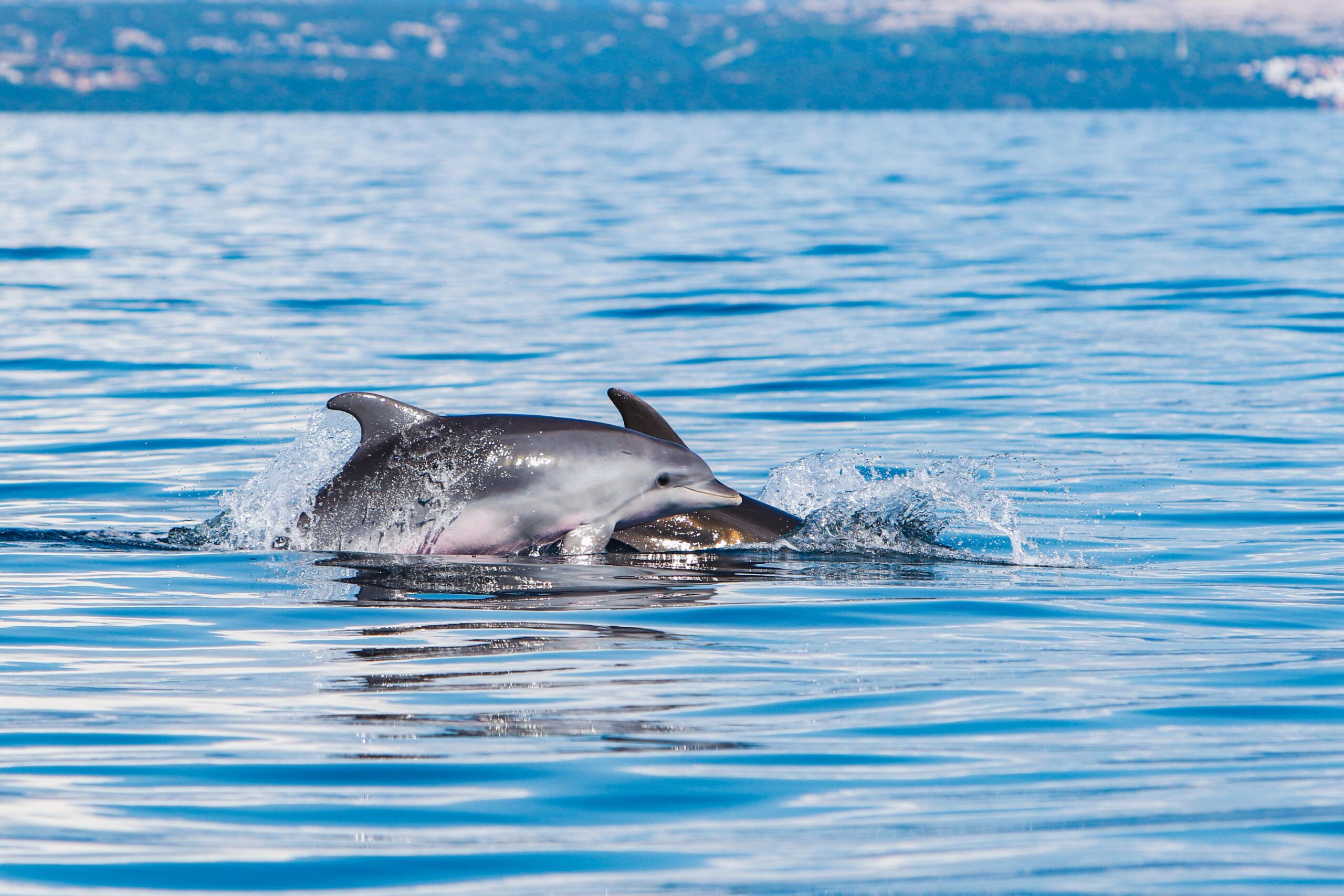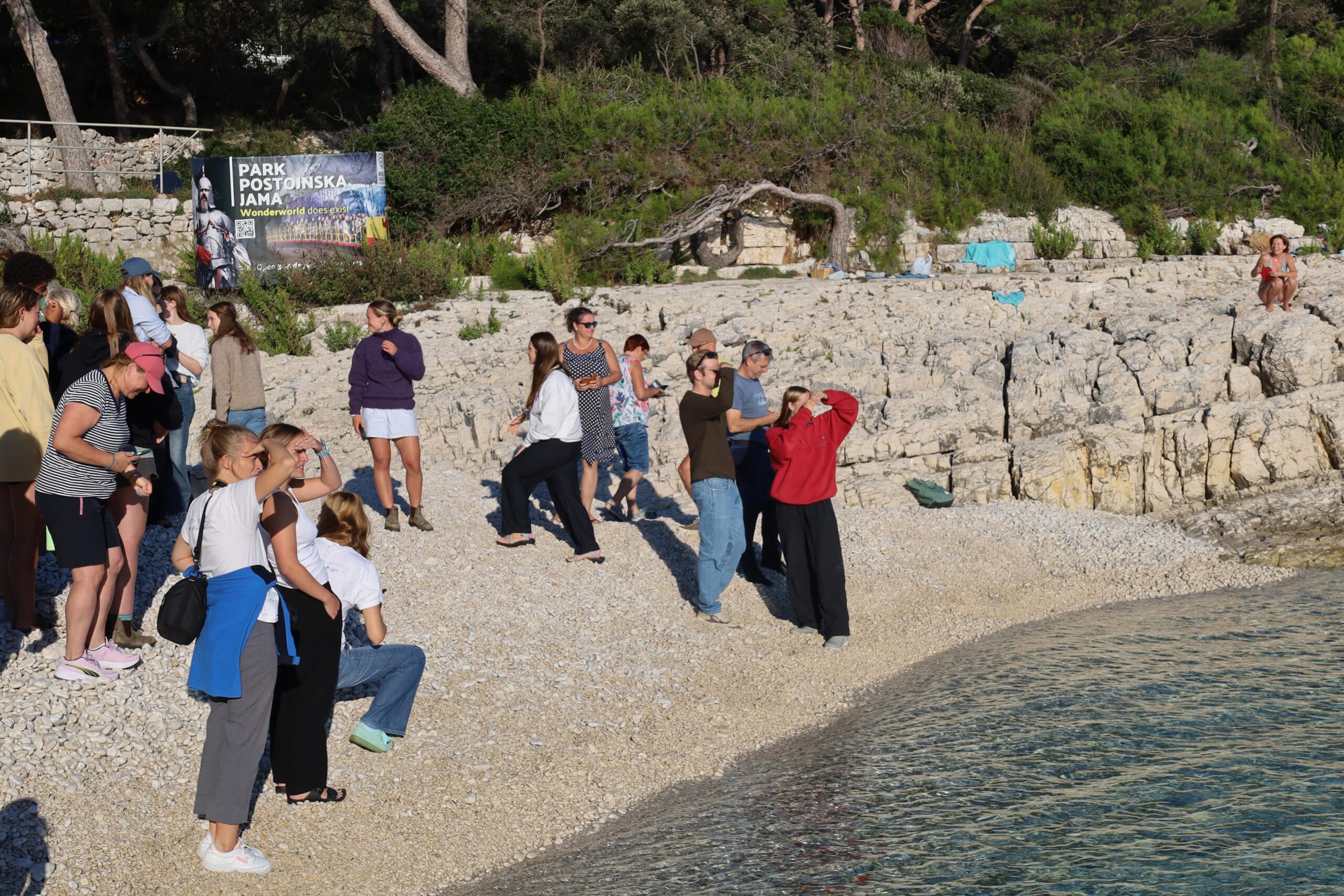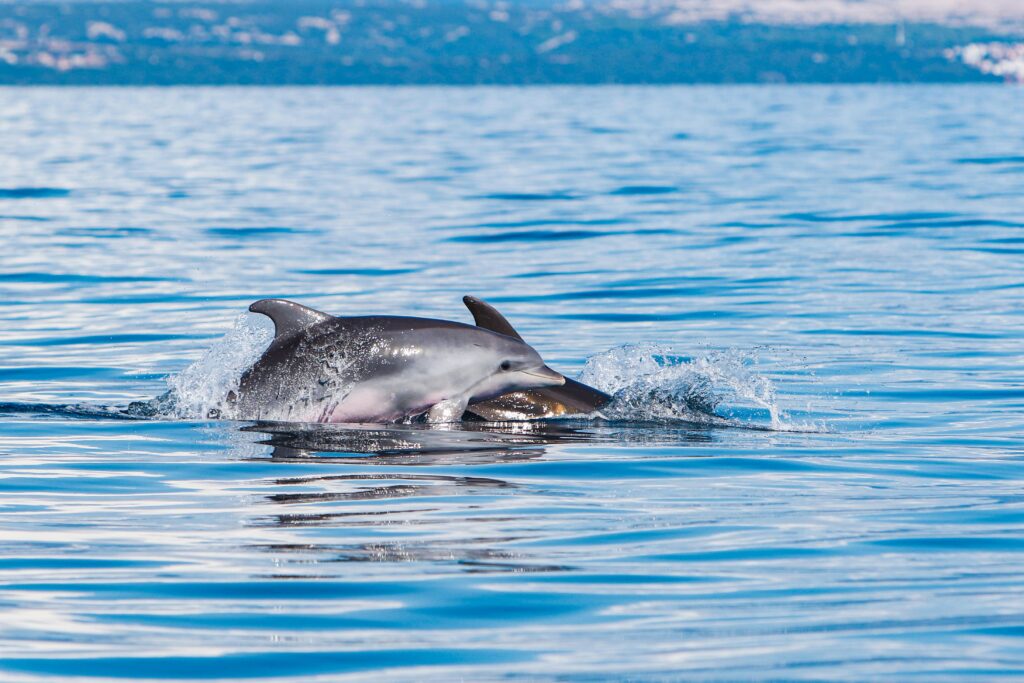
Program Costs
- Tuition
- Room & Board
- Total
Application Deadlines
Resources
Sea Turtles and Marine Mammals of the Adriatic
The Adriatic shimmers with dolphins, loggerhead turtles, and seagrass meadows, yet its waters rank among Europe’s most heavily trafficked and fished. Students survey bottlenose dolphins, satellite track turtles, and monitor seagrass, while analyzing how shipping, tourism, and bycatch threaten fragile populations. A dolphin breach beside the research boat becomes a moment of wonder, even as students log the data into conservation records. They also help rehabilitate injured turtles and interpret stranding data for policy. Each encounter underscores Croatia’s dilemma: a coast famed for beauty but pressured by unsustainable growth. Students not only contribute data but also grapple with how science and society must recalibrate to keep the Adriatic alive.
- Survey bottlenose dolphins during daily research cruises, recording behavior, group composition, and individual IDs for long-term population tracking.
- Satellite track loggerhead turtles and assess post-release success from rehabilitation centers, linking individual journeys to regional conservation outcomes.
- Monitor Adriatic seagrass meadows for structure and health while documenting associations with fish, turtles, and invertebrates.
- Record cetacean acoustic behavior with hydrophones, analyzing whistles, clicks, and calls as part of population communication studies.
- Conduct Directed Research: frame a stakeholder-driven question, collect and analyze field data with faculty guidance, and present actionable findings to local partners.
Academics
This academically rigorous program follows a five-day/week schedule. Each program combines theory learned during classroom sessions with field-based applications. The interdisciplinary curriculum is designed to help students actively discover and understand the complexities of balancing conservation with social and economic issues.
Major academic themes include:
- Cetacean and sea turtle biology and ecology
- Cetacean and sea turtle research and conservation methods
- Regional conservation strategies and spatial planning
- Protected areas and threatened ecosystems
- Nature based solutions to biodiversity loss and climate change impacts
- Systematic conservation planning and decision making
Courses
You will take three 4-credit disciplinary courses, one 2-credit language and culture course, and a 4-credit capstone Directed Research course. These are participatory in nature and are designed to foster inquiry and active learning. Each course combines lectures, seminars, group work in the field and in the lab, assignments, tests, and research. All classes are taught in English.
Directed Research – Croatia
The aim of this Directed Research (DR) course is to provide students with the opportunity to apply ecological, biological, and/or social scientific methods to a field research project that addresses an issue related to the local or regional marine or island environment. This course prepares students to distinguish hidden assumptions in scientific approaches. It also highlights how various methods and theories differentiate (or do not) fact from interpretation, cause from correlation, and advocacy from objectivity. Through DR projects, students will contribute to a body of scientific research that informs local conservation and resource management decisions and furthers the Center’s research agenda. Each student will join a faculty-led team that will carry out field research, data analysis, and communication of results in one or across several of the following disciplines: ecology, natural resource management, and social sciences.
Language, Culture, and Society of Croatia
This course introduces Croatia and the Croatia language. While all the staff at the Center speak English and all the core courses are taught in English this course will provide an entry point into other aspects of the local community through an introductory conversational knowledge of the language. The Croatian Language Module will be taught by professional Croatian English Instructors providing reading, listening, oral, written, and practical applications of the course at beginner level.
The Croatian language unit focuses on beginner-level listening and spoken language practice to improve communication and comprehension skills in everyday situations. Both units emphasize interaction with local communities through lectures, field visits, cultural events, and community outreach. Students engage in activities like workshops with local students, community events, and service projects. The second module focusses on the cultural aspect of the island of Lošinj within the national and the macro-regional context. Three field trips will be incorporated into the module, including a visit to the capital city of Croatia, Zagreb.
Sea Turtle Rescue and Rehabilitation
The goal of this course is to provide students with in-depth knowledge and practical, applicative skills in the conservation of sea turtles. This course will cover relevant parts of sea turtle natural history and biology (anatomy & morphology), that relate to providing an understanding of the husbandry, nutrition, diagnostics, therapeutics, surgery, emerging diseases, trauma, and mortality events. The course includes an overview of the most common anthropogenic threats in marine environment and state of the art solutions, while also providing knowledge on animal conditions that require treatment and recommendations for designing an effective and feasible treatment plan.
Marine Conservation Planning
The goal of this interdisciplinary course is to provide students with critical, applicable knowledge across biological, environmental, and social sciences, and provide practical skills of integrating knowledge into evidence-based marine conservation management. This course focusses on applying conservation science in a practical manner at both the science-society and science-policy interface. This course introduces students to the science, the challenges and the uncertainties associated with managing and conserving marine biodiversity. It also considers the inter-related crises of biological diversity loss and climate change. The syllabus includes multiple aspects of marine conservation, especially interdisciplinary and human dimension components. Students taking this course will be able to personalize its content and focus on subjects depending on their scientific/professional interests.
Cetacean Ecology
The goal of this course is to provide students with in-depth theoretical knowledge and practical, applicative skills in research and conservation management of marine megafauna. Marine megafauna, such as marine mammals, sea turtles, elasmobranchs and other large predatory fishes share a similar life history characterized by long life span, late maturation, and low reproduction. Such evolutionary traits make them particularly sensitive to perturbations in population’s vital rates due to increased human-induced mortality, which caused severe decline across different species and populations over the last century. As keystone species, these animals occupy high trophic levels in marine food webs and are crucial for shaping structure, diversity, and dynamics of marine ecosystems through top-down processes.
Core Skills
You will gain practical skills in the field such as: biodiversity assessments, population monitoring, animal behavior observation, GIS and mapping, biodiversity survey techniques, tag/recapture techniques, photoidentification, species management planning, research design and implementation, quantitative/qualitative data collection and analysis, scientific writing and communication, sea turtle rescue, rehabilitation, and husbandry techniques.
Field Sites
Based on the island of Lošinj, you will visit numerous different island ecosystems of the northern Dalmatian coast. Most of the fieldwork will be boat-based. SCUBA certification is not offered through this program.
Other Croatia Programs
Sea Turtles and Marine Mammals of the Adriatic
More Information
Program Costs
- Tuition
- Room & Board
- Total
21st Century Marine Pollutants
More Information
Program Costs
- Tuition
- Room & Board
- Total

